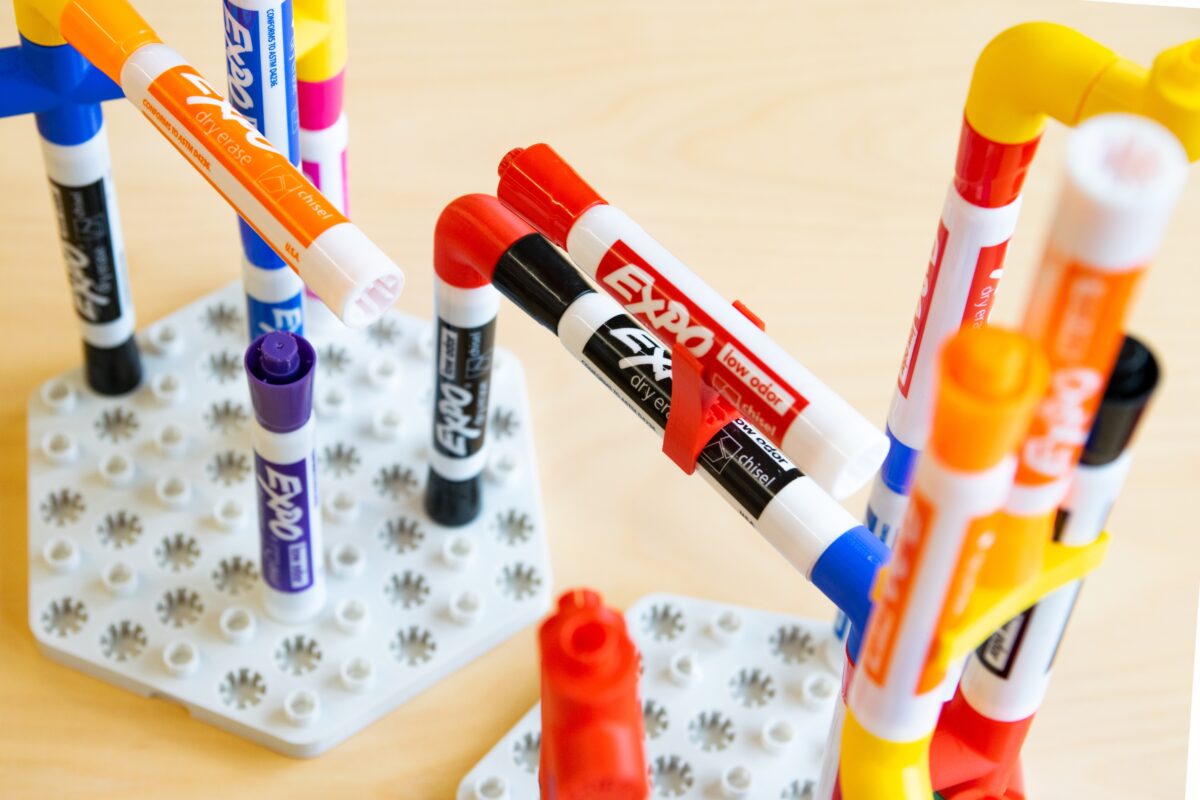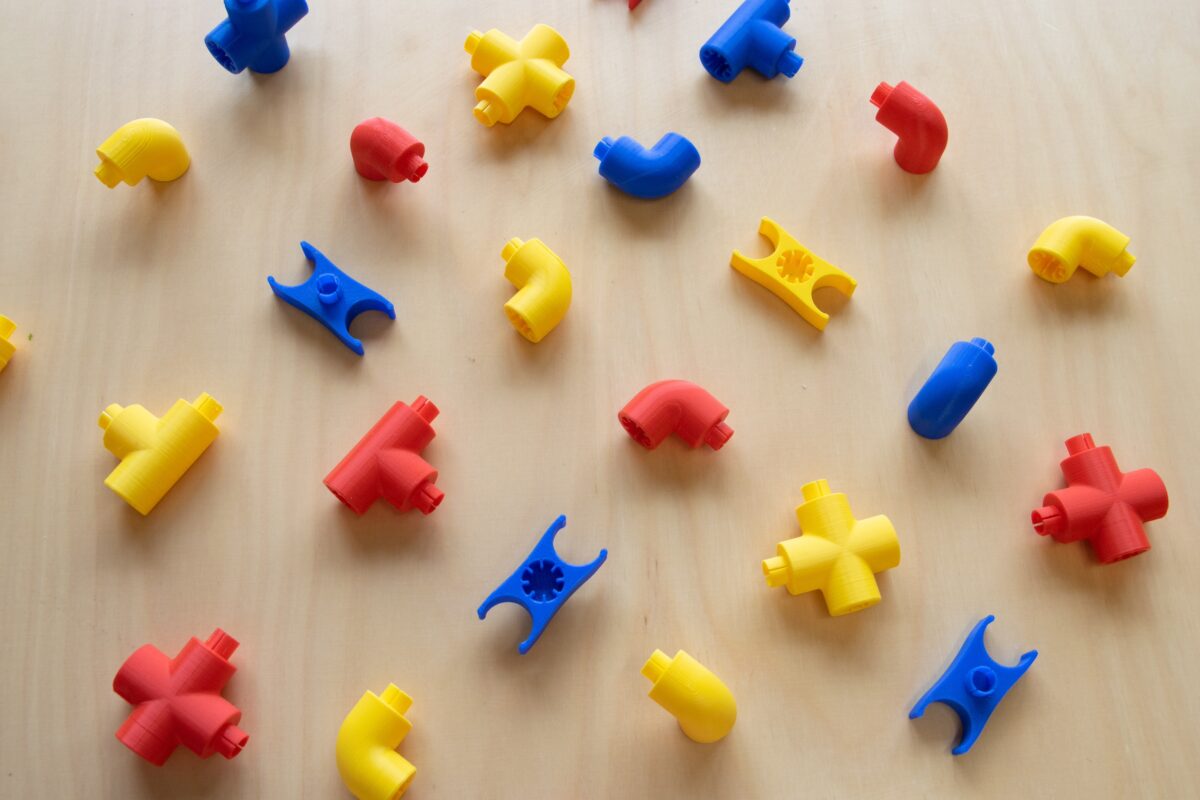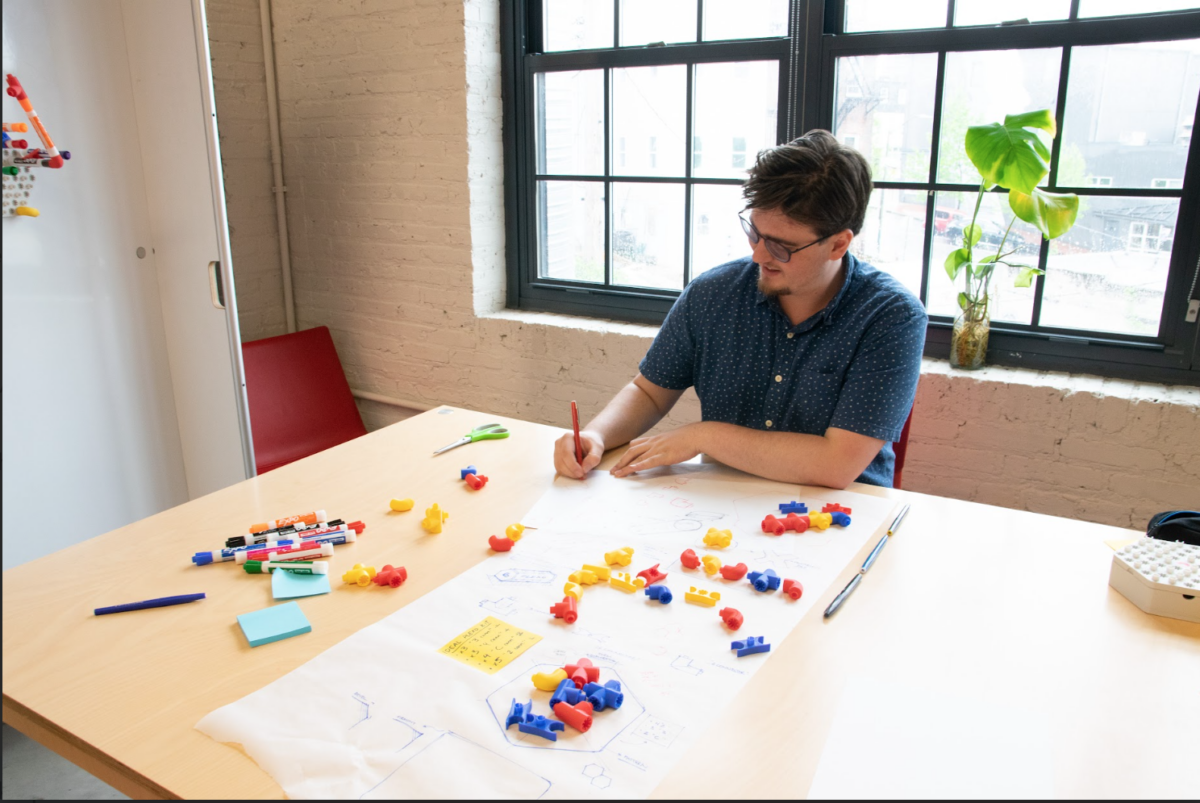Growing up in the small town of Nolensville, Tennessee, gave Anthony Culp the opportunity to see what a strenuous work culture looked like on the inside — and the importance of camaraderie in such environments.
The now-22-year-old industrial designer specifically cited his time working at a barbecue joint in his hometown during his teens. This job, among others in food service and other industries, offered him insights into workplace dynamics that inform his current work.
“Getting to see the flip side of a more strenuous work culture was pretty valuable even just as a 15-year-old getting into the workforce,” Culp said.
The Maryland Institute College of Art (MICA) alum, who studied product design and served his alma mater as a digital fabrication technician, ultimately found the value in something that facilitated worker collaboration through more playful means. That process led to him creating Plexo, a play system that can connect and adapt to Expo dry-erase markers for team-building exercises.
Culp believes that this product holds the potential to address the loneliness epidemic and foster closer connections within teams.

Plexo pieces used with Expo dry-erase markers. (Courtesy Plexo)
Culp continued to learn about team-building dynamics and the importance of connections through his current role as a manufacturing tech for Longeviti Neuro Solutions, a medical device manufacturer based in Hunt Valley, Maryland.
“The team [at Longeviti] is really great and tight-knit, and has only given me more proof and more evidence that friendship and bonds are extremely valuable in the workplace,” Culp said.
Earlier this year, Plexo secured its first significant funding during MICA’s 2024 UP/Start Venture Competition, where ventures that sought to address a social problem each received a portion of a $100,000 award pot. The $10,000 Culp won could allow him to transition Plexo’s production from his home, where he creates the pieces from his personal Creality Ender 3D printer, to a larger production space.
See all the MICA UP/Start winners
Culp acknowledged that his prize, while significant, is just a fraction of the investment needed for his ambitious plans for Plexo and its PLA plastic design. Currently, his budget only permits the production of four pieces of the greyish baseboard seen in Plexo’s photos, which hinders its scalability.
“There’s a [two-pronged] connector that bends at a right angle, a three connector that kind of looks like a little T,” said Culp of the pieces, “a four connector that looks like a little X and then our little C connector, which actually snaps onto the markers sideways, which allows for some really interesting little moments of play there.”

Individual Plexo pieces. (Courtesy)
Culp envisions Plexo including pieces that are magnetic and can adhere to the side of a whiteboard, as well as pieces that can change angles. He also seeks mentorship from folks like Ryan Anderson, VP of research for design firm MillerKnoll, and Winston Frazer, CEO of 3D-printing startup Danae Prosthetics.
People can order Plexo kits through the company’s newly launched website. In addition, Culpo said that Baltimoreans and visitors alike might see Plexo incorporated during weekly art drop-ins at the Walters Art Museum starting this September.
Before you go...
Please consider supporting Technical.ly to keep our independent journalism strong. Unlike most business-focused media outlets, we don’t have a paywall. Instead, we count on your personal and organizational support.
Join our growing Slack community
Join 5,000 tech professionals and entrepreneurs in our community Slack today!

The person charged in the UnitedHealthcare CEO shooting had a ton of tech connections

From rejection to innovation: How I built a tool to beat AI hiring algorithms at their own game

Where are the country’s most vibrant tech and startup communities?



